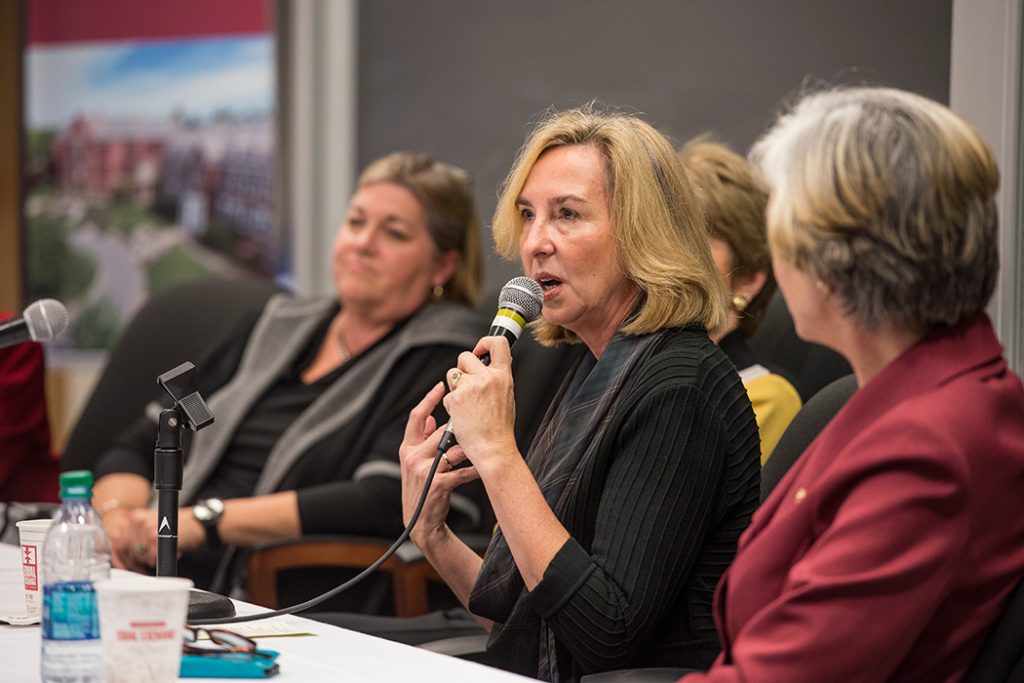The Rappaport Center for Law and Public Policy, which moved to BC Law last spring and has filled the intervening months with auspicious speakers and forums, continued that tradition with its ceremonial launch November 6, an event titled “Breaking Barriers: Gender Politics in Government.” The panel, comprising prominent women in Massachusetts politics, examined ways to increase gender equity in leadership positions.
The center’s executive director, Elisabeth J. Medvedow, moderated the panel and set the stage by pointing out that only 25 percent of legislative seats in Massachusetts are held by women, an increase of 2 percent since 1993. Citing the Center for American Women and Politics at Rutgers, Medvedow said that in the rest of the country only 22.1 percent of state senate seats and 24.9 percent of statehouse or assembly seats are held by women. Nationally, 20 women, or 20 percent, are serving in the US Senate, while only 84 women or 19 percent are in the House of Representatives.
One of the six Massachusetts women to serve in Congress, Katherine Clark, was a panelist at the event. Joining her were former Governor Jane Swift and former Lt. Governors Kerry Healey and Evelyn Murphy.
The panelists placed some of the blame for the low number of women in politics on the fact that women are treated differently in the press. It’s clear that we need to elect more women, but women are “up against a lot,” Clark said. “There’s an emphasis on appearance, and less coverage of the substantive work that women do.” She also cited online harassment of women and girls, and the Internet backlash against anyone who talks out on feminist issues. “[This harassment] is about censorship,” she said.
Jane Swift concurred, saying that if she were a man, she wouldn’t have made headlines as governor when she took a helicopter home from Boston to care for a sick child. “It’s all about “hair, hemlines, and husbands” with women, she said, adding that our “celebrity culture” contributes to the nature of press coverage.
Turning to the topic of women’s ability to fund political campaigns, Clark said that “the myth that women can’t raise money stops women from running.” That may be, but women can raise money if they are willing to do so, Swift said emphatically, “Nobody will give money unless you ask, and no one will give more than what you ask for.”
Furthermore, Evelyn Murphy observed, fundraising is one of the fundamentals of a campaign and women need to be more sophisticated about how they run things. “Mechanics matter,” she noted.
So does having more women writing the checks. “[This] provides access and ability to get their thoughts across,” Kerry Healey said. She also discussed the difference between how Republican and Democratic voters feel about supporting women, with Republicans leaning toward those with whom they are ideologically attuned and Democrats preferring to have “women’s voices at the table.”
Challenged by moderator Medvedow to offer a call to action, the panelists responded that women need to run for office or ask women to run or make it their business to support women who run.
“Until women are in equal numbers [in government], Clark said, “we won’t be fulfilling the promise of democracy.”


